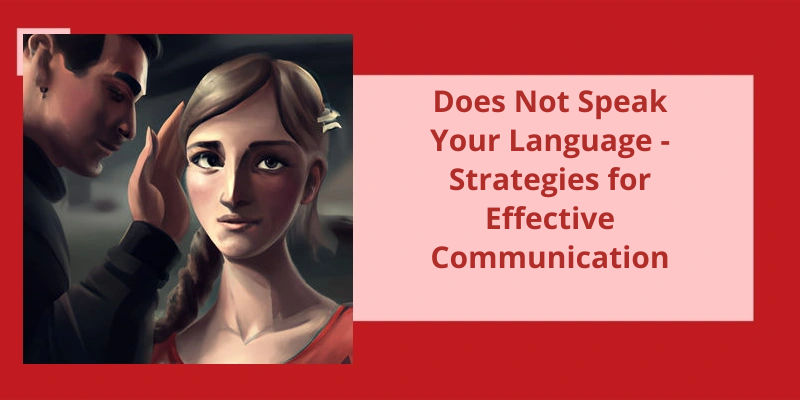As individuals, communication is a vital aspect of our day-to-day lives. From discussions with our friends and family to more fundamental interactions with colleagues and individuals of different cultures, we rely significantly on the ability to express ourselves accurately and understand others' intentions. However, it can get challenging to communicate effectively when we encounter people who don't speak our language. This situation can cause frustration, anxiety, and a general feeling of being lost in translation. Undoubtedly, a language barrier presents numerous challenges, particularly in today's increasingly globalized world, where language has become an integral part of human interaction. While technology has significantly reduced this barrier, including translation tools and applications, there remains the need for genuine human interaction that necessitates effective communication with individuals who don’t speak our language.
Will We Ever All Speak the Same Language?
Language is an incredibly complex part of human communication and interactions, and it’s evolution has always been shaped by a multitude of factors, from geographical isolation to colonial expansion. While there have been numerous attempts throughout history to establish a universal language, none have been successful enough to replace the thousands of existing languages that are spoken today. The idea of a single, dominant language inevitably raises questions about power dynamics and cultural hegemony.
In fact, the very concept of language can vary greatly depending on ones cultural and historical context. While some languages are more widely spoken than others, it’s important to acknowledge that language isn’t simply a tool for communication, but carries immense cultural and social value. Language has the power to shape our identities, our relationships, and our understanding of the world around us. For many communities, preserving and celebrating their mother tongue is a crucial part of their cultural heritage.
Furthermore, the idea of a universal language assumes a level of homogeneity and unity that may not be achievable or even desirable. Our world is made up of diverse communities, each with their own unique histories, traditions, and ways of life. To homogenize language would be to erase the rich tapestry of cultures that makes our world so fascinating and beautiful. In todays globalized world, multilingualism is becoming increasingly important for communication and understanding across cultures.
Of course, the barriers to achieving a universal language aren’t simply cultural or linguistic. Economic and political factors also play a role in the proliferation of certain languages over others. Those with access to education and resources may have more opportunities to learn and speak dominant languages, while those without such access may be left behind. In addition, language can be used as a tool of oppression and marginalization – historically, colonizers often imposed their own languages on colonized populations as a means of cultural erasure and control.
Conclusion
In conclusion, language barriers can be one of the most challenging obstacles to overcome when trying to communicate with others. However, it’s important to remember that not speaking the same language doesn’t necessarily mean that effective communication is impossible. With the help of various tools and techniques, such as translation services and nonverbal communication, individuals can find ways to bridge the gap and connect with one another on a deeper level. Ultimately, the key to successfully communicating with someone who doesn’t speak your language is to approach the situation with openness, patience, and a willingness to learn and adapt. By doing so, we can break down language barriers and foster meaningful connections with people from all over the world.






